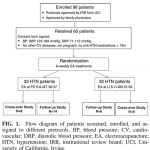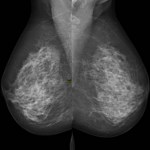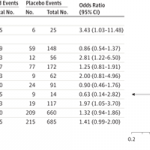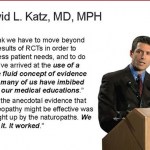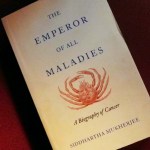Clinical trials
Acupuncture is a theatrical placebo, but it's hard not to grudgingly admire just how—shall we say?—malleable or adaptable a placebo it is. What I mean by this is that, if you believe its practitioners and adherents, acupuncture can treat almost literally any disease or health problem. Any! Pain? Acupuncture. Allergies? Acupuncture. Biliary colic? Acupuncture. Infertility? Acupuncture. Menstrual problems? Acupuncture. Prostate problems? Acupuncture. Asthma? Acupuncture.
Well, maybe not asthma, but that doesn't stop acupuncturists from claiming that acupuncture can treat it.
Oh, and if you're a…
Readers of this blog of a certain age and above are likely to remember a U.S. Senator from Wisconsin named William Proxmire. Sen. Proxmire made a name for himself in the late 1970s and throughout much of the 1980s by issuing what he dubbed "The Golden Fleece Award," which was meant to "honor" public officials who, in Proxmire's view, egregiously wasted taxpayer money. It was a popular and often headline-grabbing device to highlight wasteful spending. There was one big problem with the award, though, that I increasingly appreciated as time went on, to the point where I've referred to the…
The approval of new drugs and medical devices is a process fraught with scientific, political, and ethical landmines. Inherent in any such process is an unavoidable conflict between rigorous science and safety on the one side, which tend to slow the process down by requiring large randomized clinical trials that can take years, versus forces that demand faster approval. For example, patients suffering from deadly diseases demand faster approval of drugs that might give them the hope of surviving their disease, or at least of surviving considerably longer. This is a powerful force for reform,…
I learned over the weekend that a historic figure in science-based medicine has died. If you know anything about the history of the Food and Drug Administration (FDA), you will know this woman's name, Frances O. Kelsey, MD, PhD. It turns out that Dr. Kelsey died on Friday at the age of 101. Somehow I missed the news on Friday, but once the story showed up in my news feeds over the weekend, I knew I had to make her today's topic. Here's the short version:
The sedative was Kevadon, and the application to market it in America reached the new medical officer at the Food and Drug Administration…
The conspiracy deepens.
What conspiracy? You ask. Haven't you heard? Big pharma is out killing alternative medicine doctors! Or at least that's what you'll be told if you venture towards the deep dark underbelly of quack websites. Up until now, the most prominent "victim" was autism quack, Jeff Bradstreet, who, according to police, committed suicide by shooting himself in the chest in the woods of North Carolina but who, according to antivaccine advocates and "autism biomed" quacks, must have been assassinated by a big pharma black ops team. Or something. After all, as we know, the FDA had…
Mammography is a topic that, as a breast surgeon, I can't get away from. It's a useful tool that those of us who treat breast cancer patients have used for over 30 years to detect breast cancer in asymptomatic women and thus (or so we hope) decrease their risk of dying of breast cancer through early intervention. We have always known, however, that mammography is an imperfect tool. Oddly enough, its imperfections come from two different directions. On the one hand, in women with dense breasts its sensitivity can be maddeningly low, leading it to miss breast cancers camouflaged by the…
Homeopathy is quackery.
There, I've said it for the hundredth or even thousandth time, but I don't care if it's repetitive because it can't be emphasized enough times that homeopathy is The One Quackery To Rule Them All, with the possible exception of reiki and other "energy therapies." I also find it useful to make it clear right where I'm coming from right off the bat. If you're a homeopath and are offended, quite frankly, I don't care. Any "medicine" whose very precepts break multiple laws of physics and chemistry, laws that wouuld have to be proven not just wrong but spectacularly wrong…
One of my favorite quotes from classic literature comes from Lewis Carroll's Through the Looking Glass, when Alice encounters a rather strange character named Humpty Dumpty. Humpty Dumpty, as you will likely recall, was a giant egg with whom Alice got into an argument about the meaning of words:
And only ONE for birthday presents, you know. There's glory for you!'
'I don't know what you mean by "glory,"' Alice said.
Humpty Dumpty smiled contemptuously. 'Of course you don't—till I tell you. I meant "there's a nice knock-down argument for you!"'
'But "glory" doesn't mean "a nice knock-down…
The overarching goal that proponents of so-called "complementary and alternative medicine" (CAM) or, as is becoming the preferred term, "integrative" medicine is the mainstreaming of the "unconventional" treatments that fall under the rubric of these two terms. Indeed, that's the very reason why they so insisted on the shift from calling it CAM to calling it "integrative medicine." Not being content with the subsidiary status as not quite "real" medicine" that the words "complementary" and "alternative" imply, they want their woo to be seen as full co-equals with scientific medicine, hence…
My opinion about medical marijuana has been fairly consistent. First, the claims made by its advocates for it far exceed the evidence for its benefit, which is why I've referred to it as the "new herbalism." Of course, it's not really very new, but it is herbalism in that medical marijuana advocates make grandiose claims for using their favorite "drug" in its plant form rather than doing the standard thing that modern medicine does with natural products and try to isolate the active compounds, in this case a class of molecules known as cannabinoids. Second, although medical marijuana might…
When I wrote yesterday about the cruel sham that is "right-to-try," , one criticism (among many) that I made of these misguided, profoundly patient-unfriendly laws was that I have as yet been unable to find a single example of a patient who has managed to obtain access to an experimental therapeutic through such a law, much less been helped by it. So-called "right-to-try" laws, of course, claim to provide a mechanism by which patients with terminal illnesses can obtain access to experimental therapeutics not yet approved by the FDA but still in clinical trials. They are, as I've pointed out,…
Last year, I did several posts on what I consider to be a profoundly misguided and potentially harmful type of law known as "right-to-try." Beginning about a year and a half ago, promoted by the libertarian think tank known as the Goldwater Institute, right-to-try laws began popping up in state legislatures. I wrote about how these laws are far more likely to do harm than good, and that is a position that I maintain today. The idea behind these laws is to give terminally ill patients access to experimental drugs—in some cases drugs that have only passed phase I testing—that might help them.…
Dedicated to lilady.
One of the disadvantages of writing for this blog is that sometimes I feel as though I spend so much time deconstructing bad science and pseudoscience in medicine that I'm rarely left with the time or the opportunity to discuss some interesting science. Of course, even when I do that, usually it's in the context of that very same bad science or pseudoscience, and this post won't be different. Still, there was some interesting science with respect to vaccines published last week in Science, and I think it's worth looking over. The only thing that surprises me is that the…
So busy was I writing about America's quack Dr. Mehmet Oz and, of course, the FDA hearing on regulating homeopathy that I didn't take note of a story that came out the other day examining a study looking at the association between MMR vaccination and autism. More correctly, the study examines the lack of association between MMR and autism because that's what every well-designed study that's looked for such an association has found, a lack of association, as I've blogged about more times than I can remember over the last decade. Heck, there's already been one study like this so far in 2015.
Of…
Dr. David Katz is undoubtedly a heavy hitter in the brave new world of "integrative medicine," a specialty that seeks to "integrate" pseudoscience with science, nonsense, with sense, and quackery with real medicine. In fairness, that's not the way physicians like Dr. Katz see it. Rather, they see it as "integrating" the "best of both worlds" to the benefit of patients. However, as we've documented extensively here, on our personal blogs, and even in the biomedical literature (plug, plug), what "integrative" medicine means in practice is indeed what I characterized, the infiltration of woo…
Why, oh why, did I look at GreenMedInfo again?
You remember GreenMedInfo? It's yet another wretched hive of scum and quackery, but with a twist. Its proprietor, Sayer Ji, thinks he's an expert at interpreting the biomedical literature. Unfortunately, as he demonstrates time and time again with depressing regularity, he is nothing of the sort. In reality, what Ji is an expert at is cherry picking medical studies and torturing them until they confess agreement with whatever quack idea he's currently espousing. In the wake of the news coverage of Angelina Jolie's decision to have her ovaries…
It's no secret that I don't have a high opinion of naturopathy. Just enter the word "naturopathy" into the search box of this blog, and you'll quickly see what I mean. Indeed, when last I mentioned the topic a couple of weeks ago, I was discussing the revelations of Britt Marie Hermes, a former naturopath who realized what a load of pseudoscientific quackery she had bought into, unfortunately, after having finished naturopathy school with a quarter million dollars of debt and having practiced for a while. Her account confirmed my impression of naturopathy as a veritable cornucopia of quackery…
As I sat on my couch last night, laptop sitting in front of me, I awaited the Ken Burns adaptation of Siddartha Mukherjee's excellent book The Emperor of All Maladies into a three part television documentary to air on PBS. I'm not sure whether I'll blog the show or not, but if I do I'll probably wait until all three episodes have aired. In the meantime, this seems as good a time as any to go back to a story that I saw a week ago but somehow, thanks to grants, traveling to Houston, and other distractions that I wanted to blog about more, never got around to. Since The Emperor of All Maladies,…
If there's one thing that's become clear to me over the years about acupuncture, it's that it's nothing more than a theatrical placebo. Many are the times that I've asked: Can we finally just say that acupuncture is nothing more than an elaborate placebo? Most recently, I asked this question in 2012. What science-based medicine answers is yes. However, there's a large contingent of physicians under the sway of practitioners of traditional Chinese medicine (TCM) who have fallen under the spell of that theatrical placebo, leading to a whole subdiscipline of quackademic medicine in which…
Yesterday was a very strange day, at least on the Internet.
I really should learn to remove Twitter from my iPhone on Wednesdays. Why? Wednesdays tend to be my administrative days. I'm not in clinic seeing patients nor am I in the operating room. That's why Wednesday tends to be one of the two days a week when I write grants, do administrative work, and meet with my lab people, among other miscellaneous tasks, such as working on upcoming presentations. So I tend to spend most of the day on Wednesdays sitting in front of my computer, and I'm easily distracted by Twitter or other things…
